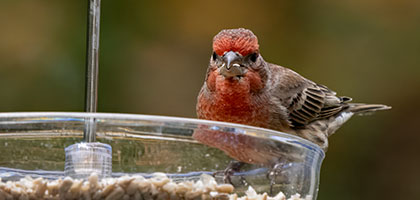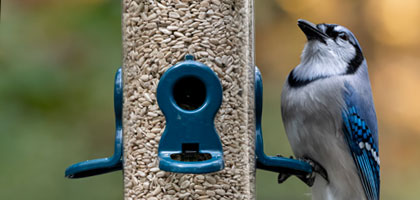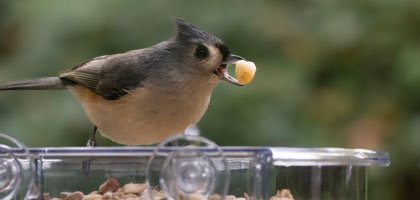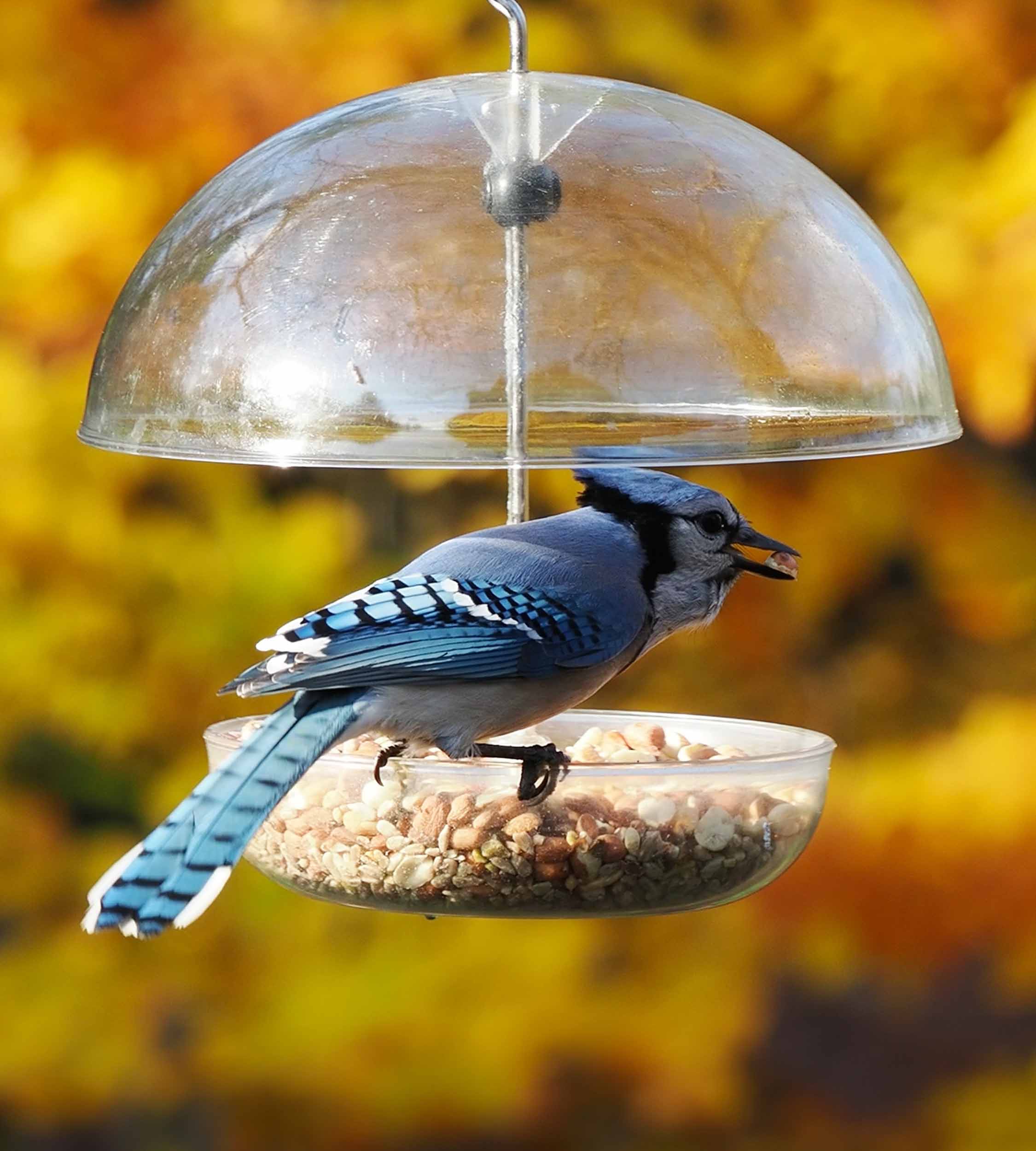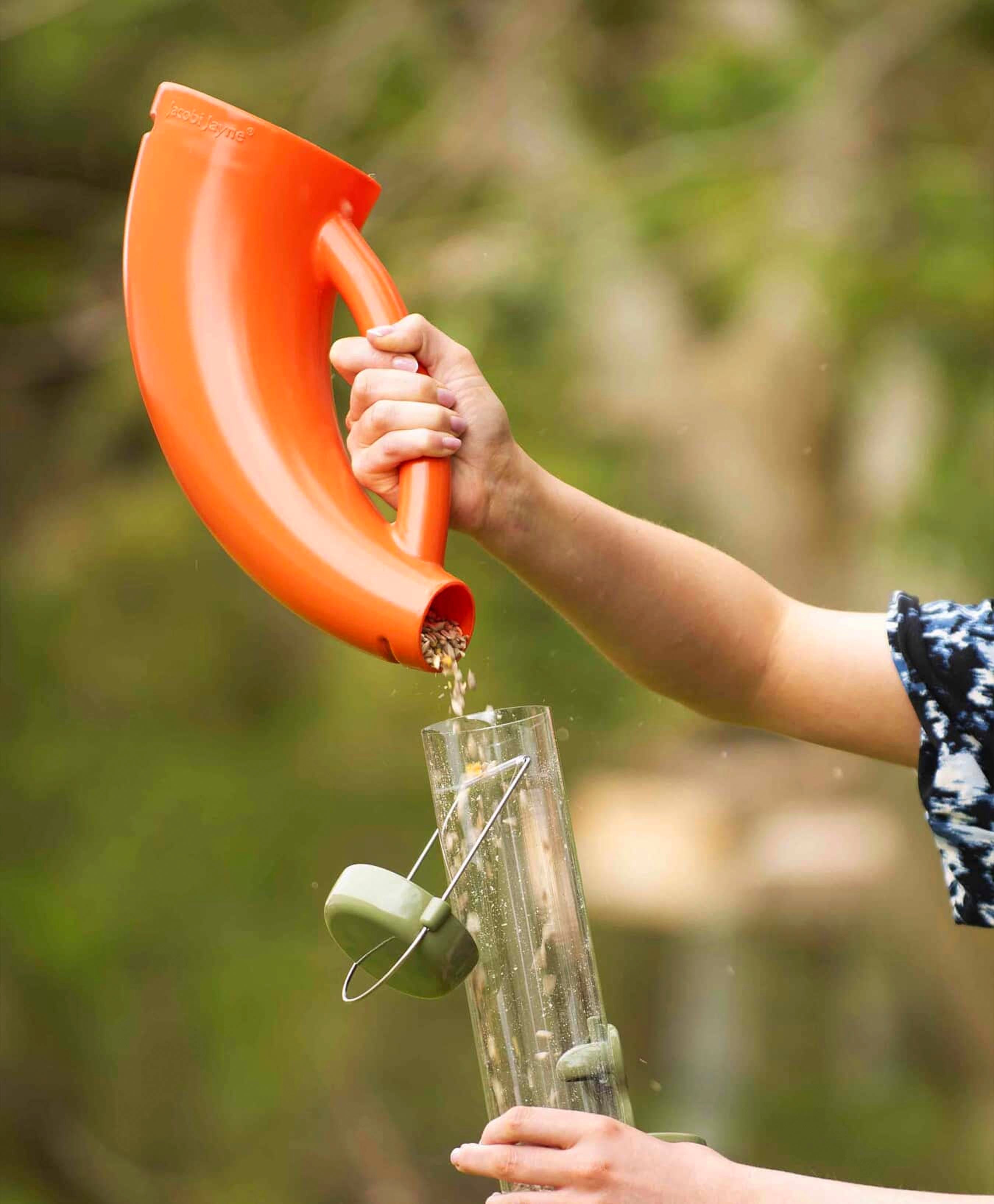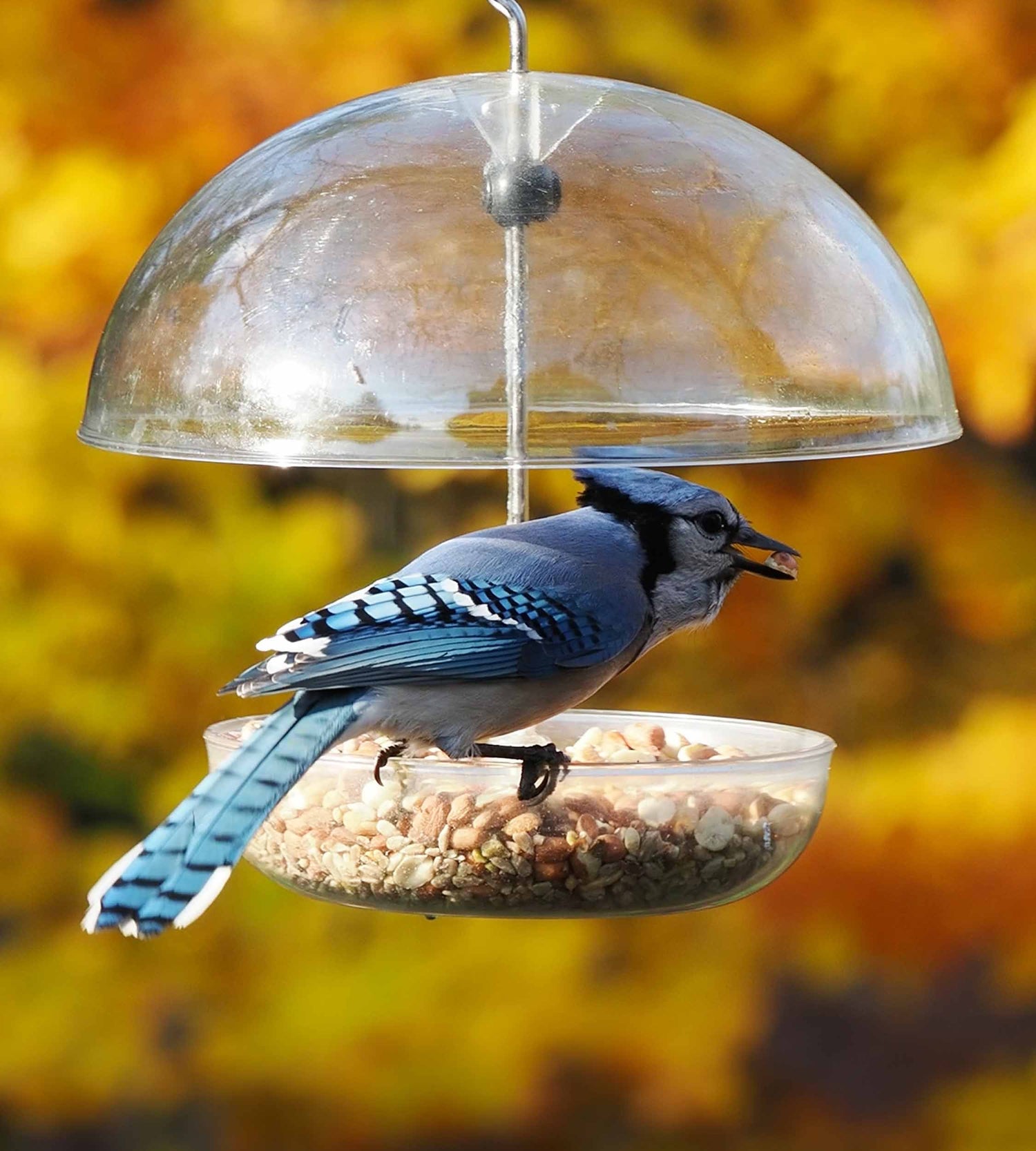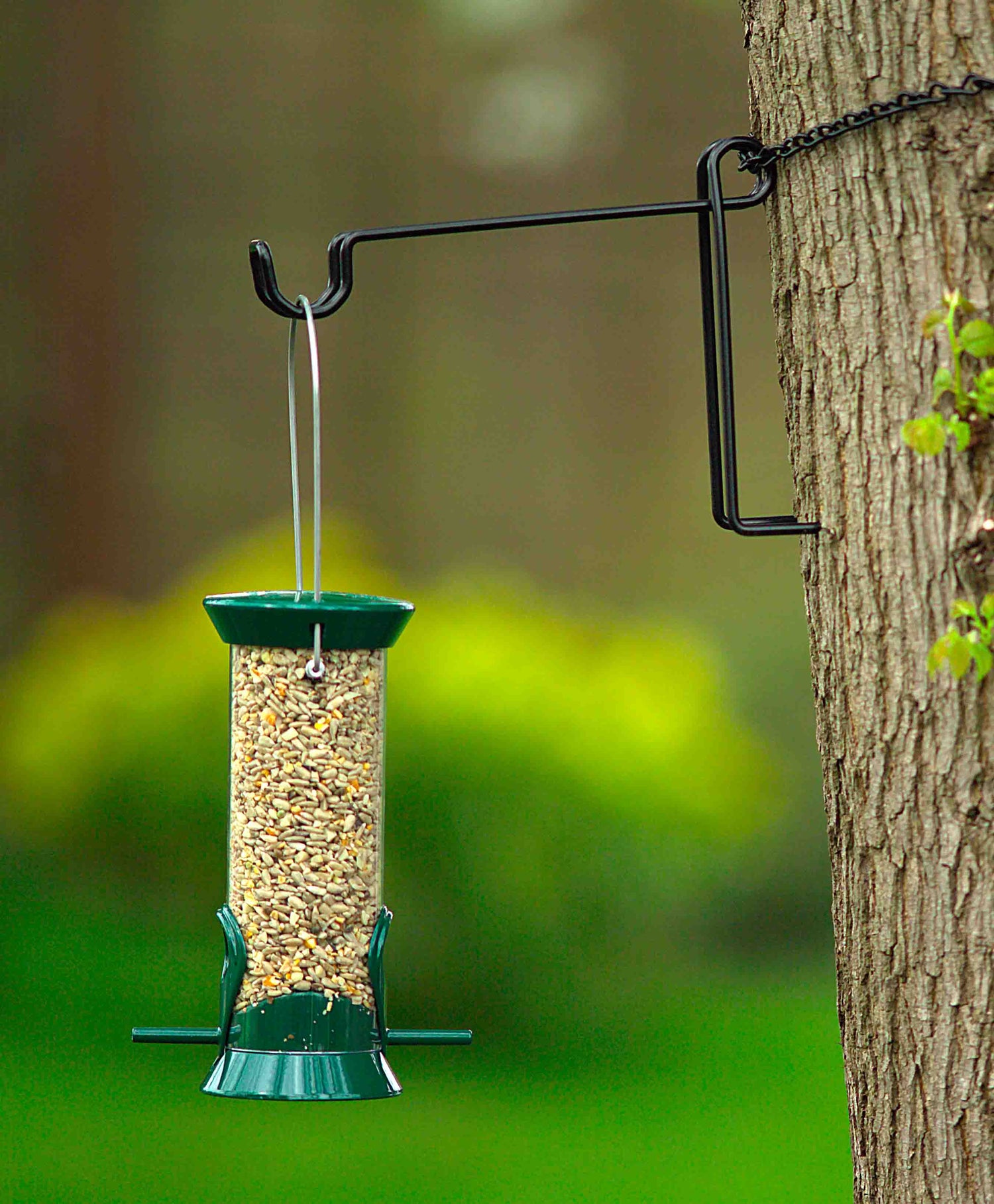Feeding birds from your kitchen can be a rewarding experience. It's a simple way to support local wildlife and enjoy the beauty of nature right in your backyard.
However, it's crucial to know what foods are safe and beneficial for our feathered friends. Not all kitchen scraps are suitable for birds, and some can even be harmful.
In this guide, we'll explore what to feed birds from the kitchen, from nutritious seeds and fruits to high-energy suet cakes. We'll also share tips on choosing the best bird feeders and maintaining a healthy feeding environment
Understanding Bird Nutrition
Birds have diverse dietary needs, depending on their species, size, and lifestyle. Some birds are seed eaters, while others prefer insects or fruits. Understanding bird nutrition is key to providing them with a balanced diet.
Birds require proteins, fats, carbohydrates, vitamins, and minerals for their survival. Proteins are essential for growth and repair, while fats provide energy and help keep birds warm.
Carbohydrates, found in seeds and grains, are another important energy source. Vitamins and minerals, often obtained from fruits, vegetables, and other natural food sources, support various bodily functions.
Feeding birds from your kitchen can supplement their natural diet, especially during harsh winter months or migration periods. However, it's important to offer a variety of foods to ensure they receive all necessary nutrients.
Safe Foods to Offer Birds from Your Kitchen
Many foods found in your kitchen can be safely offered to birds. These include grains, seeds, fruits, vegetables, and certain protein sources. However, it's crucial to ensure these foods are free of salt, spices, and other additives that can be harmful to birds.
Birds enjoy a variety of grains and seeds. These can be found in your pantry or as leftovers from meals. Uncooked rice, oats, and quinoa are all safe options. Bird seed mixes, tailored to attract specific bird species, are also a great choice.
Fruits and vegetables are another excellent food source. They provide essential vitamins and minerals that support bird health. Apples, oranges, bananas, and berries are all bird-friendly. Vegetables like peas, corn, and leafy greens can also be offered.
Protein sources are vital for bird growth and repair. Mealworms, a favorite among many bird species, can be purchased from pet stores. Hard-boiled eggs, including the shell for calcium, are another good option. Unsalted and shelled peanuts are also safe for birds.
Fats and suet provide birds with much-needed energy, especially during colder months. Homemade suet cakes, made from unsalted fats and seeds, are a high-energy food source. Suet balls, which can be hung from trees or feeder poles, are another convenient option.
Grains and Seeds
Grains and seeds are a staple in bird feeding. They provide carbohydrates, an important energy source for birds. Uncooked rice and oats are safe options. However, they should be offered in moderation as they lack other essential nutrients.
Bird seed mixes are a great choice. They contain a variety of seeds, catering to different bird species. Sunflower seeds, millet, and nyjer seeds are popular in these mixes.
When offering seeds, ensure they are unsalted. Salt can be harmful to birds. Also, avoid offering seeds with shells to smaller birds, as they may find them difficult to crack open.
Peanuts are a good source of fat and protein for birds. They should be unsalted and shelled. Peanut butter can also be offered, but it should be free of additives and spread thinly to prevent choking.
Remember to rotate the types of grains and seeds offered. This will attract a diversity of bird species and ensure a balanced diet.
Fruits and Vegetables
Fruits and vegetables are rich in vitamins and minerals. They support various bodily functions in birds. Apples, oranges, bananas, and berries are all bird-friendly. They can be offered fresh or dried.
When offering fruits, remove any seeds or pits. These can be harmful to birds. Also, cut fruits into small, manageable pieces to prevent choking.
Vegetables like peas, corn, and leafy greens can also be offered. They should be fresh and free of any dressings or spices. Cooked vegetables are also safe, as long as they are plain and cooled.
Rotate the types of fruits and vegetables offered. This will provide a range of nutrients and attract different bird species. Always remove any uneaten fruits and vegetables to prevent spoilage.
Remember, while fruits and vegetables are beneficial, they should supplement, not replace, a bird's primary diet of seeds, insects, and other natural food sources.
Protein Sources
Protein is essential for bird growth and repair. Mealworms, a favorite among many bird species, can be purchased from pet stores. They are a protein-rich food source that many birds love.
Hard-boiled eggs, including the shell for calcium, are another good protein source. They should be chopped into small pieces to prevent choking. Ensure the eggs are fully cooked to kill any potential bacteria.
Unsalted and shelled peanuts are also safe for birds. They provide both protein and fat. Peanut butter can be offered too, but it should be free of additives and spread thinly to prevent choking.
Remember to offer protein sources in moderation. Too much protein can be harmful to birds. Also, always remove any uneaten protein sources to prevent spoilage.
Fats and Suet
Fats provide birds with much-needed energy. They are especially important during colder months when birds need more calories to stay warm. Unsalted fats from your kitchen, like the fat trimmed off meat, can be offered to birds.
Suet is a high-energy food source ideal for many birds. It is made from animal fat and can be purchased from pet stores. Homemade suet cakes can also be made from unsalted fats and seeds.
Suet balls are another convenient option. They can be hung from trees or feeder poles. Suet feeders, specifically designed to hold suet cakes or balls, are also available.
Remember, while fats and suet are beneficial, they should be offered in moderation. Too much fat can lead to obesity
Foods to Avoid Feeding Birds
While many kitchen foods are safe for birds, some can be harmful. These include foods that are high in salt, sugar, or additives. Foods that are spoiled or moldy should also be avoided, as they can cause illness.
Bread is not recommended for birds. It provides little nutritional value and can fill birds up, preventing them from eating more nutritious foods. If you choose to feed bread, ensure it's whole grain and offered in moderation.
Certain foods are toxic to birds. These include chocolate, caffeine, and alcohol. Avocado, onions, and garlic should also be avoided, as they can cause digestive issues.
Cooking scraps should be cooled and free of cooking oils or spices before offering to birds. Leftover rice or pasta can be given in small amounts as long as it's plain and unflavored. Avoid offering any foods that are heavily seasoned or spicy.
Here's a list of foods to avoid feeding birds:
- Salted foods
- Sugary foods
- Bread (especially white bread)
- Chocolate
- Caffeine
- Alcohol
- Avocado
- Onions
- Garlic
- Spoiled or moldy food
- Heavily seasoned or spicy food
Choosing the Right Bird Feeder
Choosing the right bird feeder is crucial for successful bird feeding. The best bird feeders provide easy access to food while keeping it dry and safe from predators. They should also be easy to clean, as regular cleaning is essential to prevent the spread of disease.
Large bird feeders can accommodate more birds but may need more frequent refilling. On the other hand, small bird feeders are suitable for tiny birds and can be placed closer to windows for viewing.
Suet feeders are specifically designed to hold suet cakes or balls. They are a great choice if you plan to feed birds with homemade suet cakes from your kitchen.
Window feeders allow close-up views of birds but should be placed to prevent collisions. They are perfect for small birds and provide a great bird watching experience.
Best Bird Feeders for Kitchen Scraps
Platform feeders are ideal for kitchen scraps. They have a flat surface that can hold a variety of foods, including fruit slices, grains, and leftover vegetables.
Tube feeders are good for seeds and mixes. They keep the food dry and are easy to refill.
Suet feeders, as mentioned earlier, are perfect for suet cakes or balls. They can also hold other fat-rich foods like unsalted and shelled peanuts.
DIY Bird Feeders
Making your own bird feeder can be a fun and rewarding project. You can use recycled materials like plastic bottles, tin cans, or old wood.
A simple DIY bird feeder can be made by cutting holes in a plastic bottle and filling it with bird seed. Just make sure the holes are large enough for the birds to access the food.
Another idea is to use a pine cone. Cover it with peanut butter and roll it in bird seed. Hang it from a tree and watch the birds enjoy their treat.
Bird Feeding Tips for a Healthy Flock
Feeding birds from your kitchen can be a rewarding experience. However, it's important to do it responsibly to ensure the health and safety of the birds. Here are some tips to keep in mind.
- Always provide fresh water alongside food for birds to drink and bathe in.
- Rotate the types of food offered to attract a diversity of bird species.
- Avoid using pesticides or chemicals in gardens where birds feed.
- Monitor bird feeders for signs of disease or unwanted pests.
- Clean up spilled seeds to prevent attracting rodents or causing seed sprouts.
Remember, the goal is not just to feed the birds but to create a safe and welcoming environment for them. This includes providing shelter and nesting sites, and planting native shrubs and trees that produce berries and seeds.
Conclusion: The Joy of Feeding Birds Responsibly
Feeding birds from your kitchen is more than just a hobby. It's a way to connect with nature, contribute to bird conservation, and learn about the diverse species that visit your garden.
Remember, responsible bird feeding requires knowledge, patience, and a commitment to the well-being of our feathered friends.
